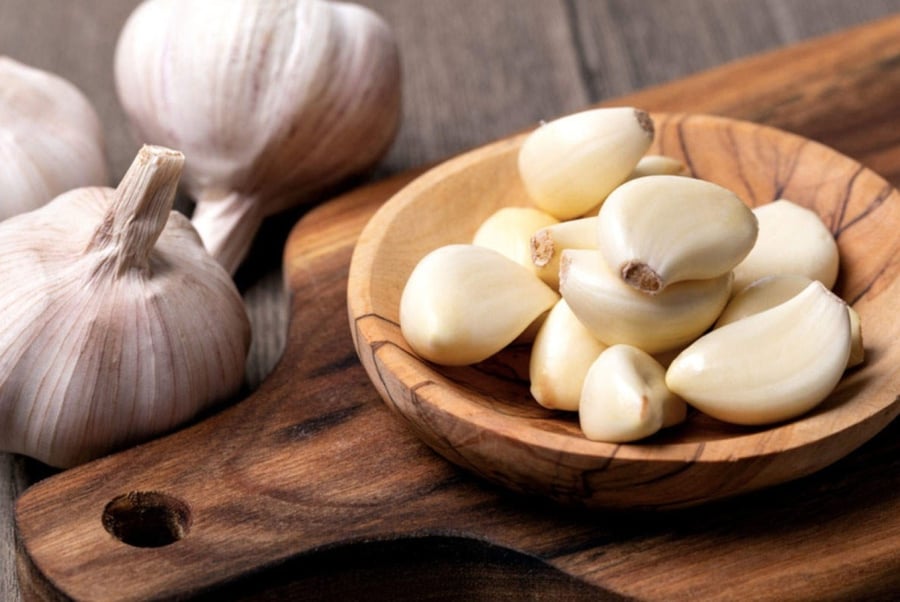Garlic consumption has been linked to a plethora of health benefits, especially for conditions such as cardiovascular disease, cancer, and metabolic syndrome. Garlic is packed with potent antioxidants, prompting current research to explore the effects of garlic supplementation.
Garlic is a good source of essential nutrients. According to studies, 100g of garlic contains 6.36g of protein, 33g of carbohydrates, and B-group vitamins (B1, B2, B3, B6), as well as minerals such as iron, calcium, potassium, manganese, magnesium, and phosphorus.
The main active components in garlic are organic sulfur compounds and glycosides. Garlic also boasts high levels of germanium and selenium, with germanium content surpassing that of renowned medicinal herbs like ginseng, green tea, and rooibos.
Benefits of Garlic
Garlic offers a wide range of health advantages, including:
– Scavenging free radicals
– Lowering high cholesterol and high blood pressure
– Exhibiting antiviral and antibacterial properties
– Reducing the risk of prostate cancer in older men
Today highlights that while garlic quantities in dishes are often small compared to other ingredients, its health benefits are significant. Garlic contains phenolic compounds with anti-inflammatory properties.

Recent research suggests that garlic supplementation may lower cholesterol levels and the risk of atherosclerosis, high blood pressure, diabetes, hyperlipidemia, heart attacks, and strokes. Scientists attribute these effects to garlic’s antioxidant properties, which protect the heart from stress and damage.
Garlic has also been studied for its potential role in cancer treatment. A randomized controlled trial concluded that long-term garlic supplementation in gastric cancer patients was associated with lower mortality rates.
Additionally, garlic shows promise in addressing metabolic syndrome, a cluster of conditions including high blood pressure and obesity, which increase the risk of type 2 diabetes and cardiovascular disease. Studies in this field consistently indicate that garlic consumption reduces the likelihood of developing metabolic syndrome.
One study examined the impact of consuming one clove of garlic daily for 30 days on type 2 diabetes patients. The participants experienced reductions in LDL (“bad”) cholesterol and triglycerides, along with improvements in HDL (“good”) cholesterol.
In another study, researchers investigated the effects of raw, crushed garlic on metabolic syndrome. After consuming a meal with 5g (approximately 1.5 cloves) of garlic, immune genes and cancer-killing cells increased.
Side Effects of Garlic
Garlic is not only affordable and versatile but also packs a punch in terms of flavor and nutritional value. However, garlic may cause digestive issues for individuals with irritable bowel syndrome (IBS) or gastroesophageal reflux disease (GERD).

Garlic contains fructans, a type of carbohydrate that can trigger unwanted bloating and gas in individuals with IBS. Moreover, allicin in garlic increases stomach acidity and relaxes the esophageal sphincter, potentially exacerbating gastroesophageal reflux in people with GERD.
































